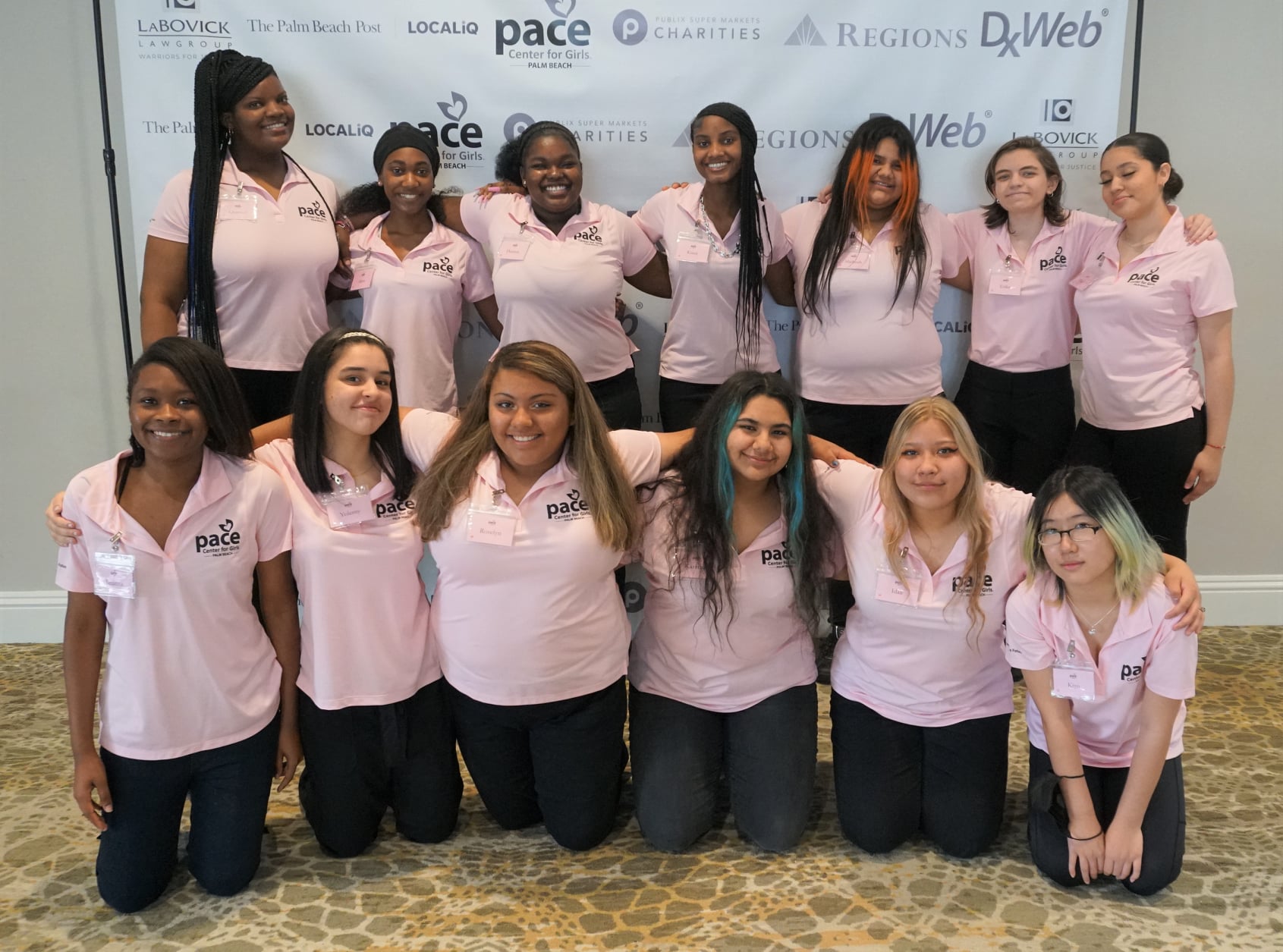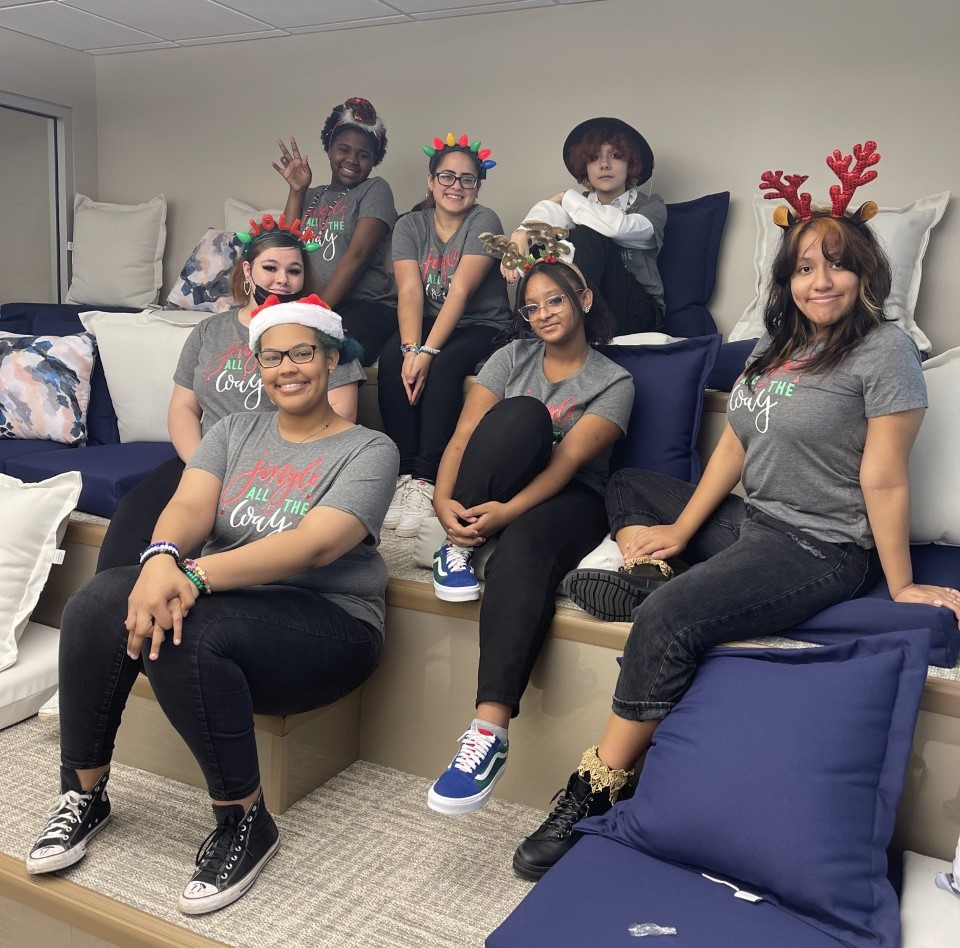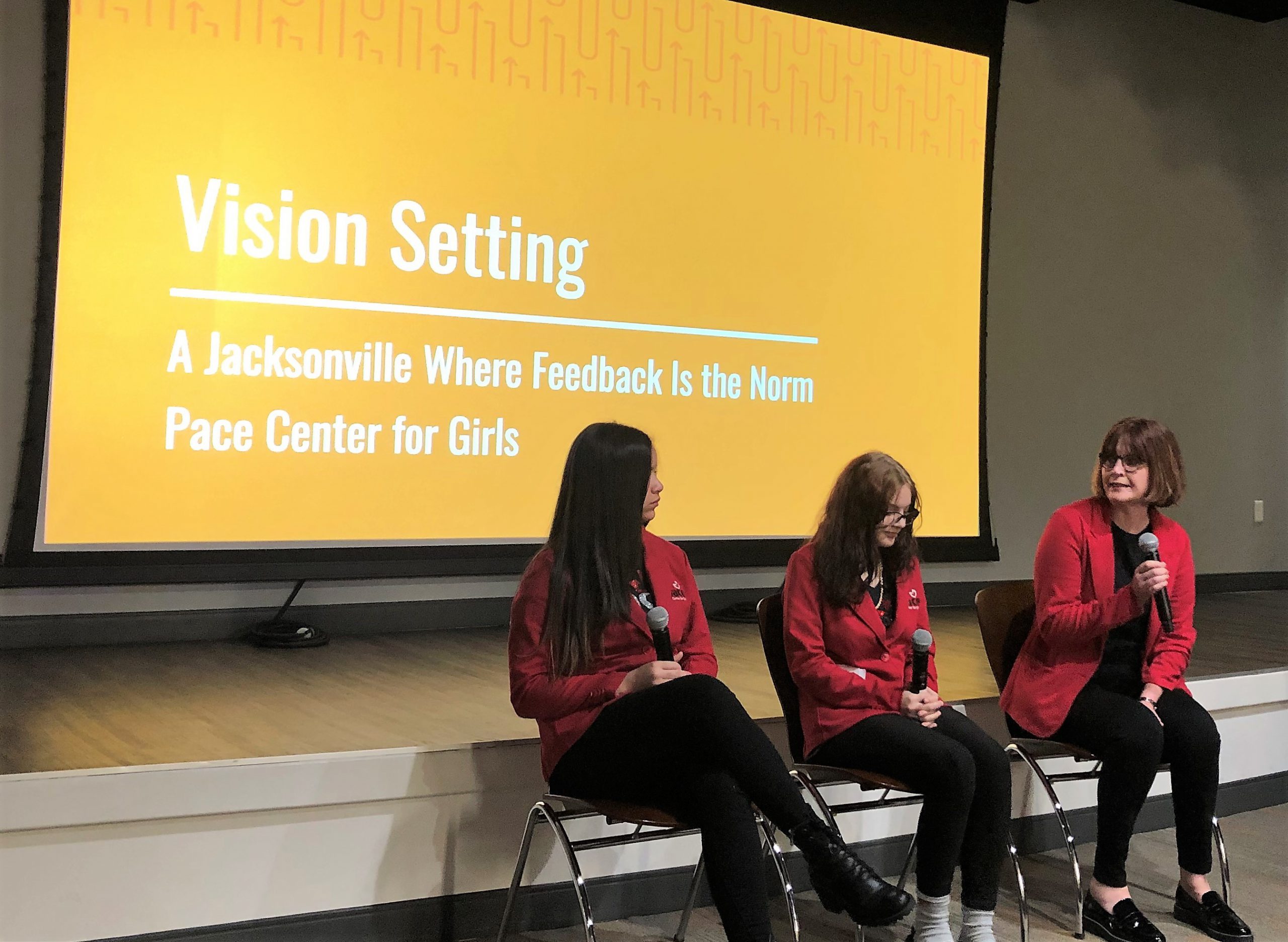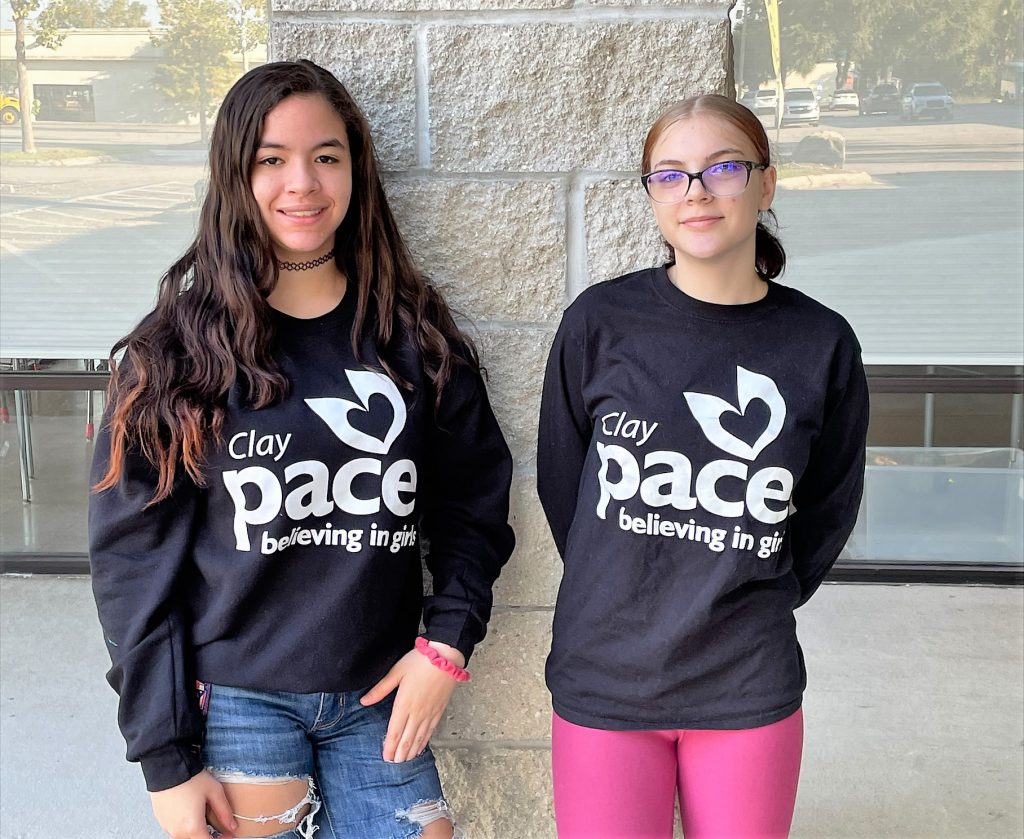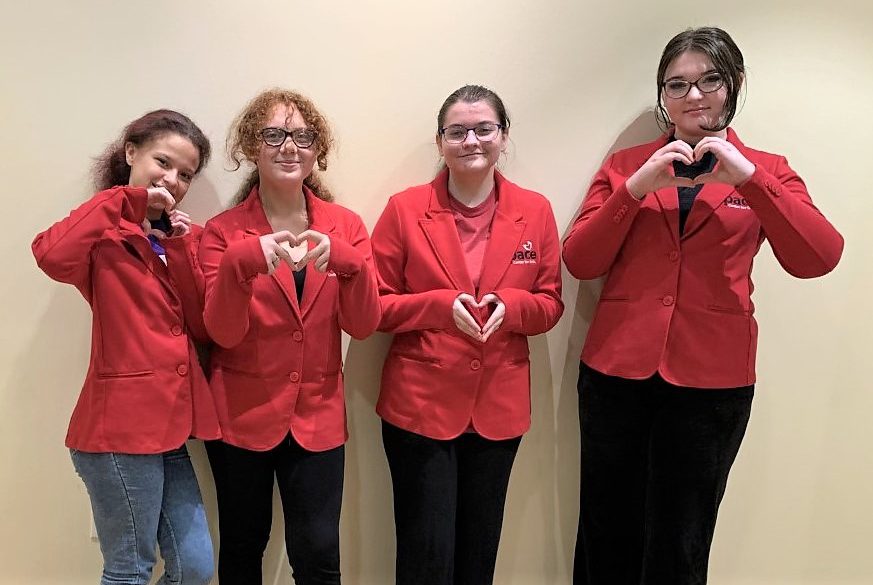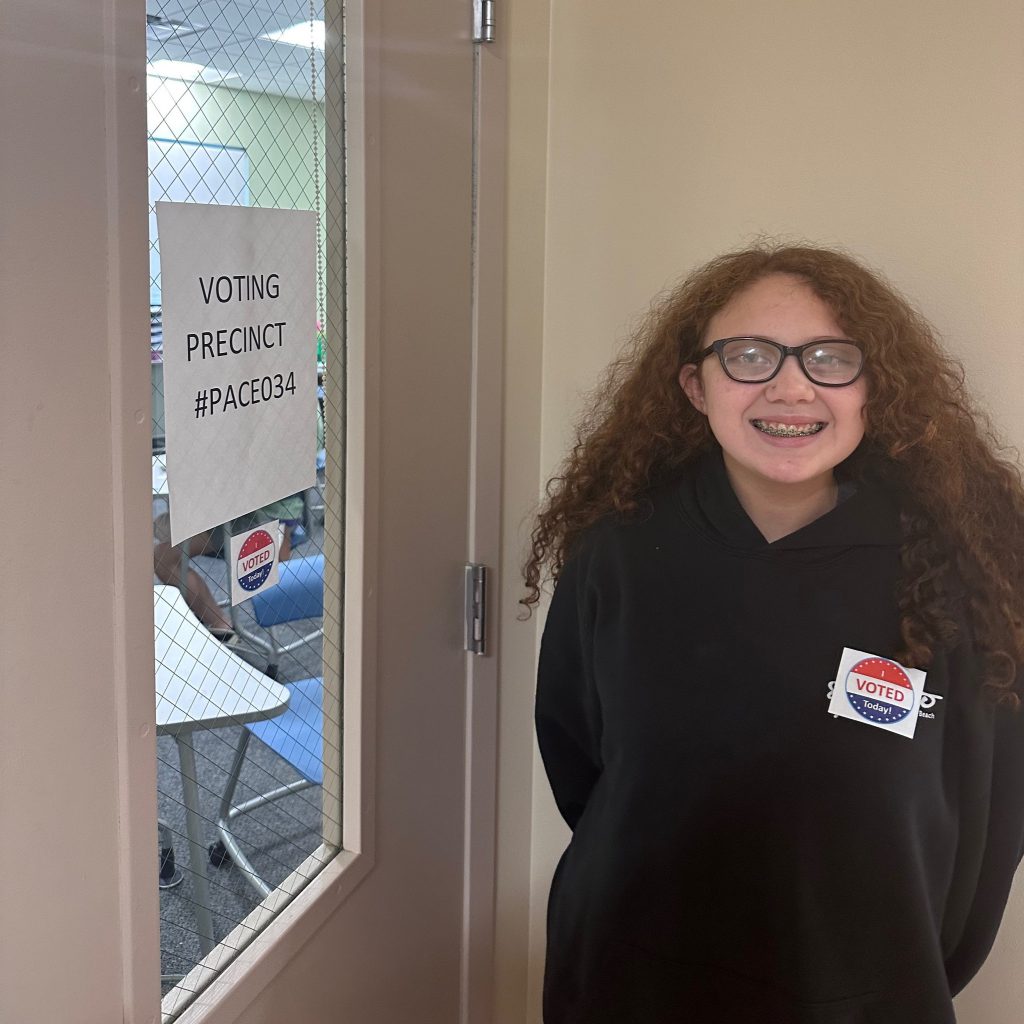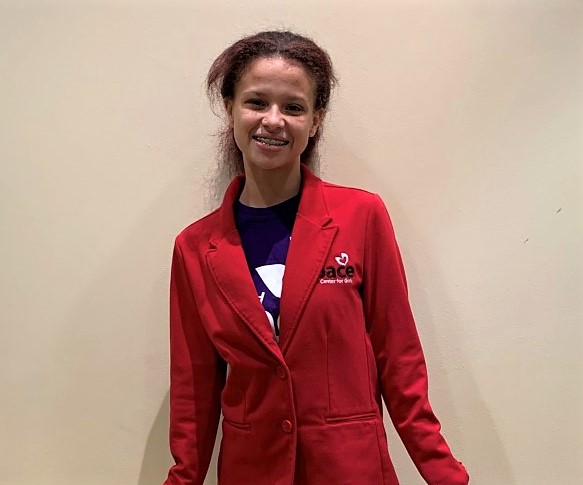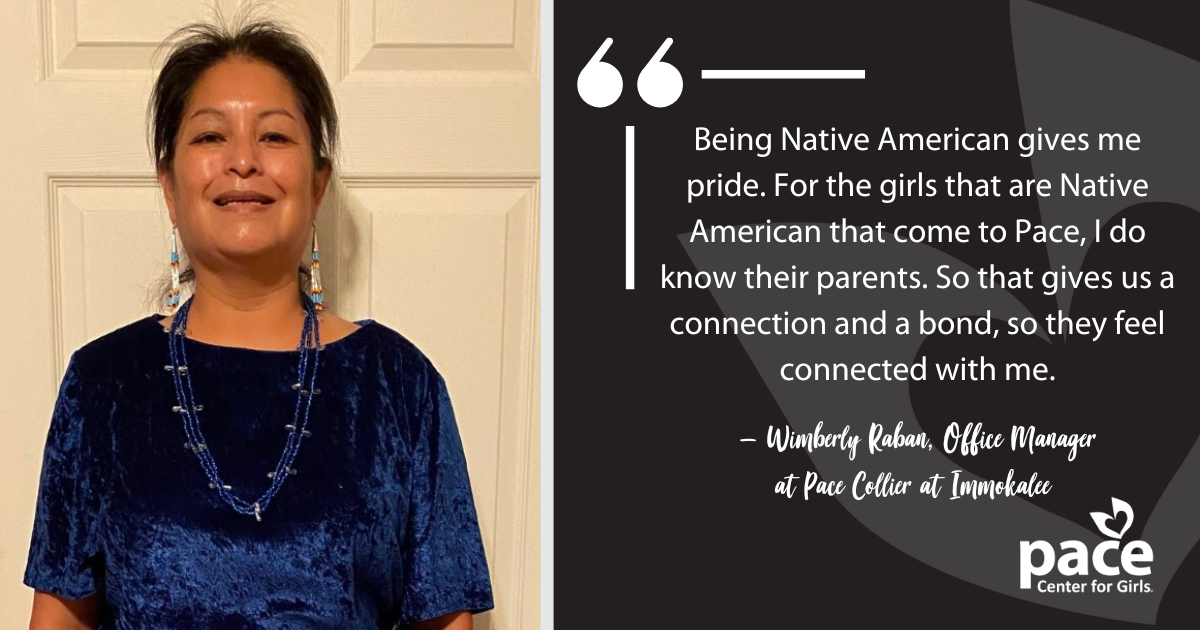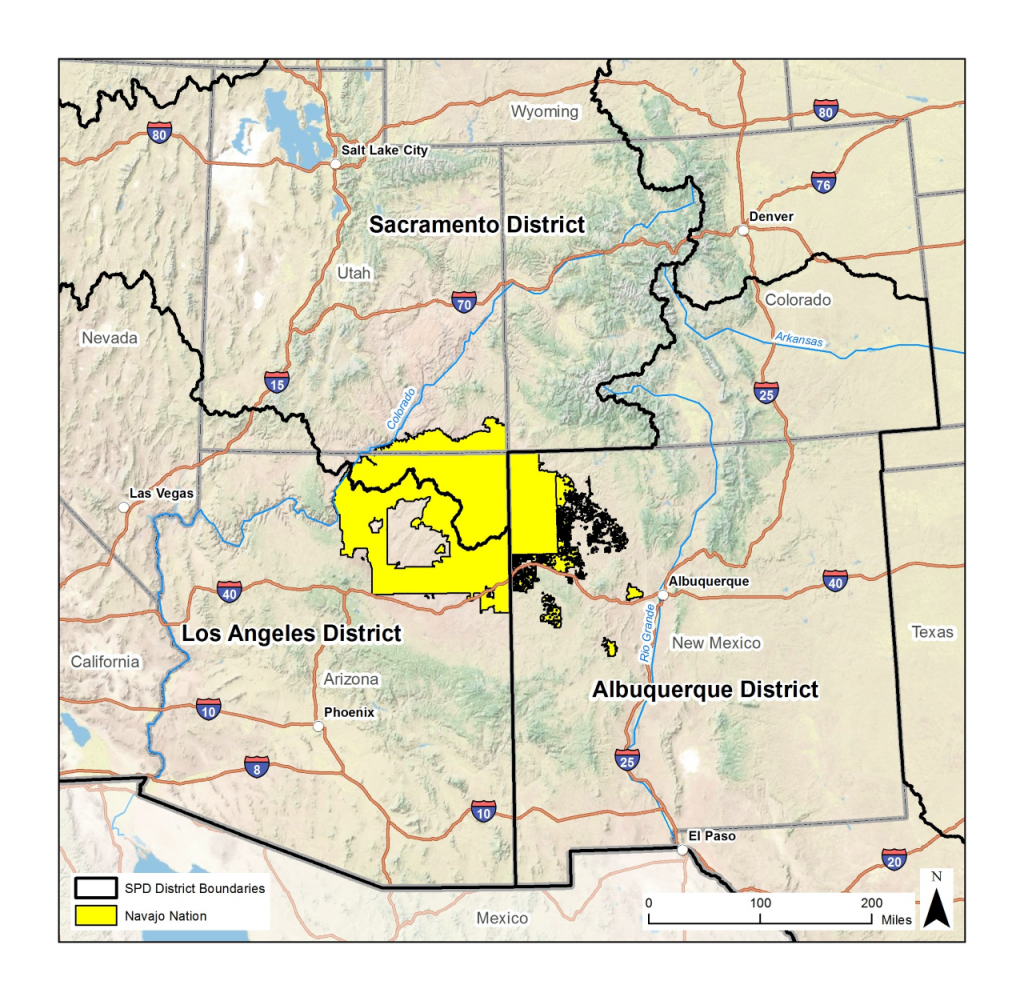Angie is a recent high school graduate and valedictorian of Pace Center for Girls, Palm Beach. She was a former secretary of the Pace Center for Girls Leadership Council and was a member of Leadership Grow of Palm Beach County. Angie currently serves as a 2022 Florida Department of Juvenile Justice Youth Ambassador.
We sat down with Angie as she reflected on her experience at Pace and her journey to where she is today.
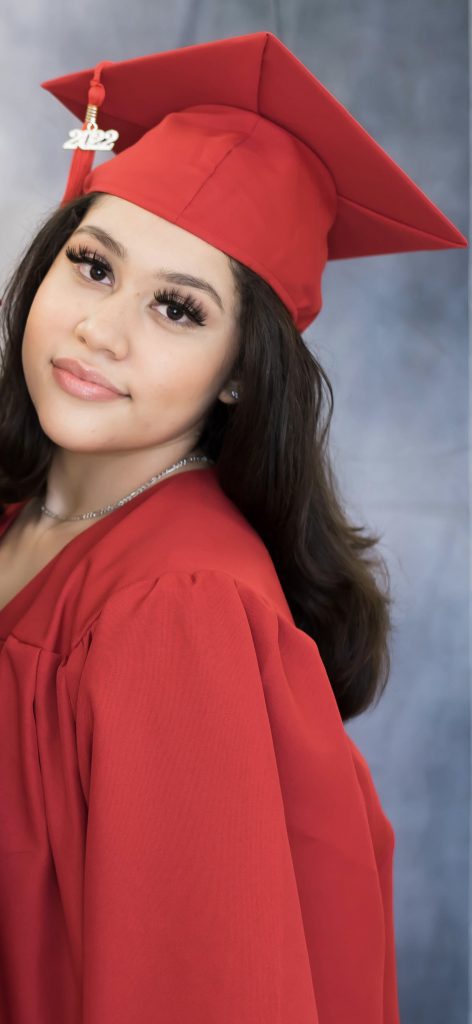
How did you find Pace?
I was at a rough patch in my life to the point where public schools weren’t working for me. I was getting in a lot of trouble and causing my family significant issues. An officer was transporting me and recommended Pace to me. Initially, I did not want to go to an all-girls school. But I decided to give Pace a try. I enrolled in Pace with a 1.7 GPA. I remember it correctly because I was failing and had gotten so off track in school. I really didn’t care about life at that point.
What support did you receive at Pace?
Once I was enrolled, things just started going right. I wasn’t used to a setting where people were positive and wanted to help me get better. I started feeling much more comfortable with telling my story without having to feel judged because Pace was such a safe space for me.
I started participating in the Girls Leadership Council and progressively leveling up in Pace’s Growth and Change System. I enrolled in Pace’s Reach Program and the Life Coach Program. Everyone helped me stay on track.
I went from being a straight ‘F’ student to a straight ‘’A student. I finished my senior year with a 3.5 GPA and was the valedictorian. In 2022, I won the DJJ (Department of Juvenile Justice) Youth Ambassador Award. And that’s when the DJJ Department in Tallahassee reached out to me to see if I’d like to submit an application to go into the Juvenile Justice Delinquency Prevention State Advisory Group.
Tell us more about your experience advocating for girls.
I was the Secretary of Pace Palm Beach’s Girls Leadership Council and a member of Leadership Grow of Palm Beach County. During that time, I would advocate for mental health support because a lot of girls unfortunately go through a lot of challenges with substance abuse and family issues.
What changes would you like to see in the Juvenile Justice System?
I think the main change is finding the underlying cause of girls’ challenges and not just focusing on wrong doings. I also think there can be improvement in taking care of people in the Juvenile Justice System who have mental health challenges. A lot of people do not end up getting mental health support and that’s why they can end up going back into the system. I’m thankful I was set up with Pace and a therapist.
Tell us more about why you were chosen to be the 2022 Florida Department of Juvenile Justice Youth Ambassador.
I think a lot of things contributed to me being chosen. Of course, me previously being involved with the DJJ system, and then my work advocating for fellow girls on Pace’s Girls Leadership Council. I also participated in Pace Day at the Capital and was able to meet and speak with a couple of Senators.
What motivates you to raise your voice for change?
I think what has motivated me the most is when other girls share that they look up to me.
At Pace Day at the Capital, I was able to join other girls in sharing our stories and advocating for change in record expungement. I feel like adults can say something, but when it’s coming from a girl who’s been through the experience, others are willing to listen and see what they can do in terms of changing the system for the better.
What future do you envision for yourself?
I’m proud of myself and I owe a lot to Pace. I improved my academics drastically and have heard from different universities and state officials. My love is real estate – ever since I was younger and would drive by all the mansions on Palm Beach Island with my mom. I’m interested in architecture and staging houses for them to be sold. I hope to one day have my own brokerage.
We continue to be inspired by the growth and development our girls demonstrate to make their communities stronger for all.
Pace Day at the Capitol remains an essential component of the Pace advocacy strategy with respect to appropriations and legislative priorities. It also provides an opportunity for Pace girls to participate in the legislative process, by testifying before committees, engaging in mock debate on specific bills, and by advocating with their individual legislators.


